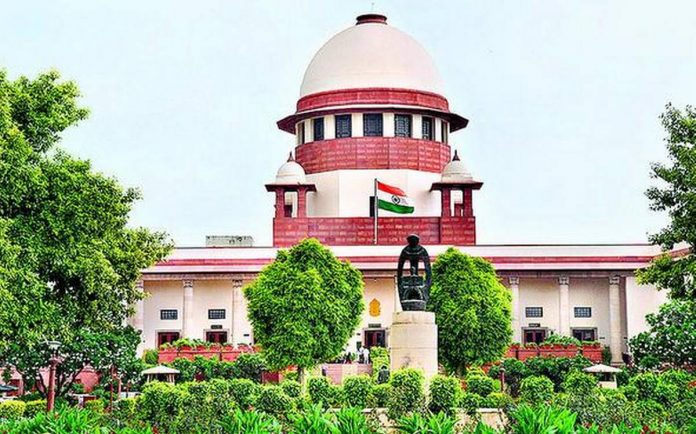The Supreme Court on Wednesday decided to hear a plea filed seeking Permanent Commission for women officers in the Navy, who are due to retire on December 31, 2020.
The Apex Court also stayed the release of those 10 women officers who are scheduled to retire on December 31. The Court will hear the plea in January, along with other similar petitions filed for women officers in the Army.
A division bench of Justices Indira Banerjee and Aniruddha Bose on Wednesday decided to place the matter before a regular bench without any prejudice to the rights and contentions of the party. The plea has contended that permanent commission has been denied to women officers in the Navy in non-compliance of the Apex Court’s judgment in February 2020.
The Supreme Court on February 17 had directed the Indian Army to grant Permanent Commission to women officers who want to be considered for the same, while observing that excluding women completely from command appointments and allowing them in staff appointments only is against Right to Equality under Article 14 of the Constitution and is unjustified. It was held that an absolute bar in command appointments doesn’t favour the right of equality, and is outright discriminatory.
The court had further observed that if stereotypes regarding men being the bread-earners, being stronger than women etc. continue then such thinking will never go away.
The court had said, “If there is a will and a change in mindset on the part of the government, then women officers could be allocated command posts in the Army,” adding that “there are several other services where women could be included, such as combat operations.”
The court had directed the necessary steps to be taken in 3 months to execute this judgment from the date it was pronounced. The apex court had refused the Centre’s argument that women can be given only staff appointments. Justice D.Y. Chandrachud said,
“It is an insult to women as well as the Army when aspersions are cast on women, their ability and their achievements in the Army. The arguments as given on behalf of the government are cluttered with gender stereotypes.”
The Centre had also submitted a note before the court, enumerating its reasons for not extending the choice of permanent commission to women officers. “Composition of rank and file being male, predominantly drawn from rural background, with prevailing societal norms, troops are not yet mentally schooled to accept WOs (women officers) in command of units,” said the note.
“Inherent physiological differences between men and women preclude equal physical performance resulting in lower physical standards and hence the physical capacity of women officers in the IA remain a challenge for command of units,” the note said, adding that officers are expected to lead their men from the front and need to be in prime physical condition to undertake combat tasks.
To this, the court had said administrative will and change of mindset are required on the issue of giving command posts to women officers in the Army.
The judgment had also referred to examples of women officers such as Squadron Leader Minty Agarwal, Divya Ajit Kumar, IAF officer Gunjan Saxena etc, who have received gallantry awards for their bravery during combat operations as a response to arguments on physical weaknesses of women and them being unsuitable for being in the position of a command officer.
The Central Government on July 23 had issued a formal sanction to grant PC to women officers and the Army had set August 31 as deadline for women officers in Short Service.
This had come after the top court’s bench of Justices D.Y. Chandrachud, Indu Malhotra and KM Joseph had in early July, given the Centre one month time to implement its order of granting Permanent Commission to all women army officers under the Short Service Commission (SSC) in the Army. The order had come after the bench heard an application filed by the Ministry of Defence asking for six months time for implementation the apex court’s February order.
Also Read: Allahabad High Court to hear plea against Hanuman temple demolition in city on January 12
The defence ministry’s application for extension of time was on the grounds that the coronavirus pandemic had affected administrative functioning, with offices closed during lockdown. That made it difficult to implement the apex court’s order, the application had said. The application had said that only the final orders remained to be issued.


